#religious studies
Text

Dissertation prep is scary but exciting! I can’t believe I’m already having to start this; it feels like I started uni yesterday.
#studyblr#study#studying#studygram#study aesthetic#study space#studyinspo#studyspo#study tips#notes#dissertation#uni studyblr#uni student#uni stuff#uni studyspo#religious studies
289 notes
·
View notes
Text
Fellow mythkin, cryptids, other nonhumans of the like, urban legend enthusiasts, and people in the anthropology (such as myself) or religious sciences fields:
#just noticed the irony of a nonhuman choosing anthropology as his major#please do note I'll use my own non-USAmerican upringing and culture as baseline of research#and that stories here can get batshit insane#*Poll#*My post#otherkin#nonhuman#mythkin#mythical nonhuman#cryptidkin#therian#beastkin#ghostkin#theriomythic#alterhuman#therianthropy#otherkinity#voidpunk#cryptidcore#anthropology#social studies#religious studies#divinekin#demonkin
80 notes
·
View notes
Text
The Sultan, they said, was a good man. Soft, quickly moved to tears. Out of compassion, he bought the freedom of a Christian woman's stolen daughter. Even Walther von der Vogelweide, the minnesinger in distant Germany, praised the "mildness" of the powerful ruler in the Orient, whose name has a good reputation in the West: Saladin, a righteous man.
He was a man who always kept his word, even to his enemies.
He let his subjects drag him to court, because God's laws applied equally to everyone. Also for him, the ruler who managed to do what no one had ever managed before: to unite the Islamic world of the Middle East after centuries of discord and to wrest Jerusalem, the holy city of the Muslims, from the Christians in 1187.
His name translates as "righteousness of faith", and Saladin is indeed a devout Muslim. Nevertheless, after his conquest of the Holy Land, he allowed the Christians and Jews there to continue praying to their God. This is another reason why, more than half a millennium later, Western Enlightenment thinkers would make him the epitome of the tolerant ruler.
But this al-Malik an-Nasir Salah ad-Din Abu'l-Muzaffer Yusuf ibn Ayyub ibn Shadi, known as Saladin for short, also had other sides.
He could be treacherous, vile and mean. He did not shy away from murder. Nevertheless, this man fascinated his contemporaries. He became one of the most revered rulers of the Islamic world and the most important opponent of the Crusaders.
Saladin was born in 1138 in Tikrit (in present-day Iraq), the son of a Kurdish officer. During his political career, Saladin was the first to bring Egypt's army under his control.
Saladin, a Sunni, now founds two universities where theology is taught according to Sunni theology - a signal that he is on the side of the population. He also abolished a number of taxes that contradicted the Koran and the teachings of the Prophet.
Saladin's subsequent conquests shock the Christian world. By 1174, his power extended from North Africa to the southern tip of the Arabian Peninsula. In 1186, he ruled from the Nile to the Tigris.
At the height of his power, the Sultan even dreamed of taking the Holy War to Europe, conquering Rome - and putting the Pope in chains.
The Crusaders conquered Jerusalem in 1099 and held it until Saladin besieged it in 1187 and handed it over to the Ayyubid dynasty, a Muslim sultanate that ruled the Middle East at the beginning of the 12th century.
Saladin wanted to recapture the city, which had previously been ruled by Muslims.
For Muslims, Jerusalem is a place where important events in the life of Jesus and other important personalities took place. It is also the place where the Prophet Mohammed ascended to heaven according to the traditional interpretation of the Koran and other texts.
In Sunni Islam, Jerusalem is the third holiest city after Mecca and Medina. Muslims believe that Muhammad was brought to Jerusalem during his night journey (Isra and Mi'raj).
The name Jesus is mentioned twenty-five times in the Holy Qur'an, often in the form 'Isa ibn Maryam, which means "Jesus, son of Mary". In the Quran, he is given the unique title "Messiah" (al-masih in Arabic), which means "anointed one". He is considered one of many prophets from the lineage of the Prophet Ibrahim, or Abraham (peace be upon him). Many Muslim traditions regard it as an ideal example of spirituality. Unlike Christians, who generally believe in a triune God, Muslims believe that Jesus was a great prophet who was to lead mankind on the straight path of monotheism and obedience to God (Allah).
When Jerusalem also fell, two kings and an emperor set off for the Holy Land with their armies from 1189 onwards. One of the monarchs is King Richard I of England. Even before the armed pilgrimage, he had already earned himself an honourable name: "Lionheart."
Saladin lies in wait for the Christians in the forests of Arsuf near the Mediterranean coast. But King Richard of England had anticipated the attack; on 7 September 1191, his troops won a clear victory. Nevertheless, the Muslim army is still strong enough to block the road to Jerusalem.
Saladin's reconquest of Jerusalem in 1187 prompted Pope Gregory VIII to organize the Third Crusade. From 1189 to 1192, Saladin lost Acre and Jaffa and was defeated in the field at Arsūf. The Crusaders retreated to Europe without seizing Jerusalem, but Saladin's military reputation had been damaged. He died in 1193.
#learn about history#studyblr#religion#religious studies#crusaders#history#oriental#history of crusade#Saladin#king baldwin iv#kingdom of heaven#history of Jerusalem#Islam#christianity#history of Religion#teaching#books#booklr
64 notes
·
View notes
Text
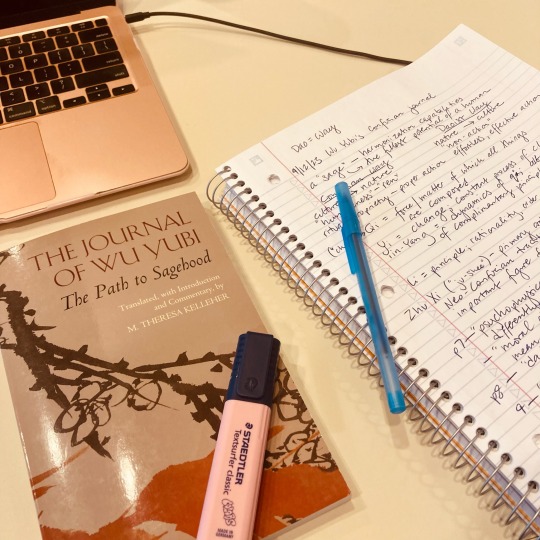

9.12.2023 = starting the journal of Wu Yubi for my religious autobiography class
#study blog#studyblr#studyspo#study aesthetic#photos#college#university#college student#religious studies#study with me#reading#books
188 notes
·
View notes
Text
the fact that abrahamism, a highly localized national cult (academic usage of the word) specific to the upper classes of one tiny national-religious group in the centuries BCE, has spread to every corner of the globe and ingratiated itself within so many cultures’ noble classes that said foreign cultures’ mythohistory placed their own completely foreign history into the framework of the bible as a means of making their own history prestigious and holy, is so crazy to me.
130 notes
·
View notes
Text


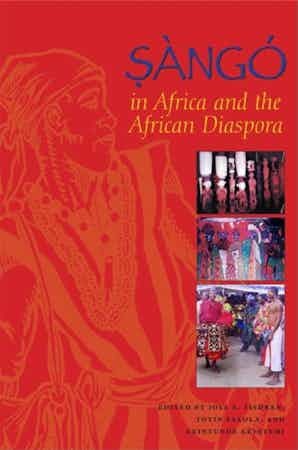
#black dark academia#dark academia#poc dark academia#noir library#books#bibliophile#currently reading#bookblr#books and reading#booktok#yoruba#religious studies#history#black spirituality
89 notes
·
View notes
Link
1K notes
·
View notes
Text
Hey ( With the intention of discussing religious books and novels and share sanatan knowledge )
#desi#desi tumblr#desi academia#desi tag#desi thoughts#desi life#desiblr#desi core#sanatani#sanatandharma#sanatana#religious studies
46 notes
·
View notes
Text
ramadan prep 7/mar/24



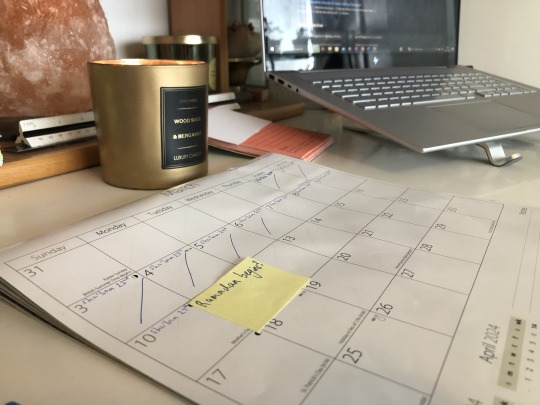
im not doing mentally well (as per usual) but here's to another ramadan- another chance at change and tawbah.
very late to my ramadan prep, but better late than never. i have to prepare dua's and find religious books that will lay out what i need to do during the month so i can make a definitive checklist. taking any and all book recs/ ramadan planner recs pls and thank u.
things im gonna have to juggle:
studying inorganic & physical chemistry
fasting
reading (leisure)
religious studies (dua, quran)
writing (might put that one on the back burner)
iftar (you know im gonna be beside my mom every single evening helping out)
teraweeh (i wanna go to the mosque every night, god i hope i make that happen)
#books#dark academia#chaotic academia#reading#academia#lit#literature#studying#studyblr#bookblr#islam#ramadan#muslimah#productivity challenge#university#religious studies#ramadan countdown#NEJJ BOOKBLR#currently reading#book recs wanted
41 notes
·
View notes
Text
There is more than 200 Christian denominations in the U.S. and over 45,000 globally, according to the Center for the Study of Global Christianity
There’s 10,000 different types of religions (1 being Christianity).
During Christian studies, they found that EVERY Christian will pick and choose what part of the teachings THEY believe in. So, actually, the number of different beliefs is astronomical.
Almost every act of war is historically recorded as having a religious undertone.
Please remember this the next time you decide that YOUR beliefs should blend in with laws and government policies.
Once you open that door, it allows someone with a completely different belief to walk in. The next thing you know, laws will be forcing you to do things you can’t imagine.
Henry VIII started the Church of England, destroying Catholic Churches and killing believers. When his daughter “Bloody Mary” took over, she wanted England Catholic again…. So she created the same violence her father did, but this time it was protestants (people who protested the Catholic Church) who were burned alive.
History has a thousand stories just like that one.
Keep church and state separate, its the only way we can survive in peace.
Stop the stupidity.
#vote democrat#vote#gun violence#church and state#religion#vote blue#religious trauma#religious studies#womens rights#women empowerment#roe vs. wade#reproductive justice#reproductive choice#pro choice
21 notes
·
View notes
Text

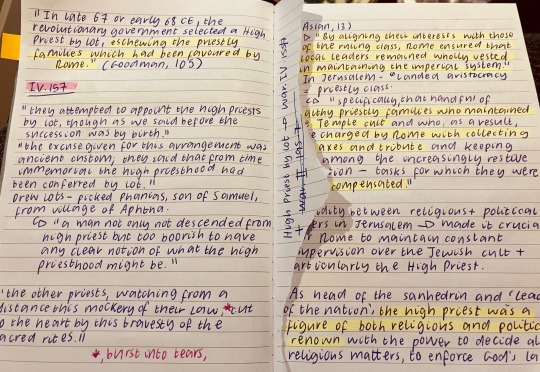

for some reason I plan my assignments so much better by hand…I wonder if it’s because it takes more time to write it down, and I can’t just brain vomit without considering what I want to include. I did an unnecessarily large amount of research for this essay but I loved the topic so I don’t regret it.
have a good rest of your week everyone!
#studyblr#study#studying#studygram#study aesthetic#study space#studyinspo#studyspo#study tips#notes#uni studyspo#uni studyblr#uni student#uni stuff#uni shit#religious studies#religion#degree
29 notes
·
View notes
Text

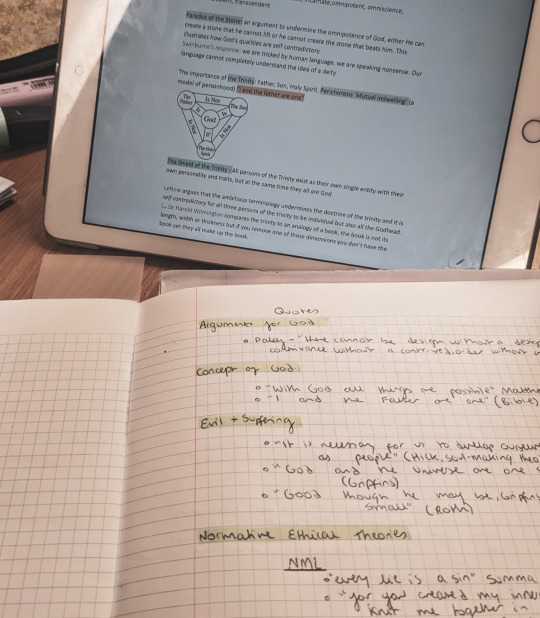
slowly getting through my to do list today :)
#study diary#studyblr#study#study inspiration#a levels#religious studies#coffee#cafe aesthetic#tumblr diary#we are going to ignore the dirty ipad okay?!
360 notes
·
View notes
Text
Religious Literacy in Solarpunk
People who clown on this post will be blocked on sight.
What is religious literacy?
Religious literacy is, at its most basic, an understanding that religion is an intersectional factor in both the public and private spheres. That means that religion affects culture, society, and politics. Religious literacy also means possessing a foundational understanding of various religious traditions’ history, texts (if applicable), beliefs, practices, and modern-day expressions. Learn more about religious literacy here.
You do not need to be religious yourself to be religiously literate!
You do not need to be a religious studies scholar to be religiously literate!
Why is religious literacy important in activism?
The fact is, if you are going to be part of an activist movement, you are going to encounter religious people. This is simply the truth. It does not matter how you feel about religion yourself; you will be working alongside people all across the spectrum of religious traditions and religiosity. For a lot of these people, their religion will be the reason they are working for change. Thus, you can’t ignore religion.
But most importantly—in my opinion—is understanding, through religious literacy, that we all have bias about religion, and that we all need to work through that bias. Everyone grew up somewhere, and there is nowhere on this Earth that has not been touched by religion in some way. We all carry assumptions about what religion is, what a religious person looks or acts like, what [insert religion here] believes, etc etc. And frankly, a lot of those assumptions are very skewed, if not simply wrong.
What does this have to do with solarpunk specifically?
Here are a few reasons religious literacy is important in solarpunk:
Like I mentioned before, every solarpunk activist will encounter a fellow activist who is religious, and we all need to be prepared for conversations about religion that are respectful and open-minded. Knowing the basics about the major religions of the world and being open to learning more is essential for this.
Solarpunk, as a movement that encourages hope and harmony with the Earth, has a lot of ideological overlap with major teachings in a ton of religious traditions. You will certainly encounter this in your activism, and you have to be prepared to understand the basics.
Building a better future must include making room for people to be religious. This doesn’t just mean “to each their own” individualism, but it means imagining your solarpunk utopia complete with mosques, shrines, temples, churches, and other communal places of worship and veneration. It means planning ahead for disagreements between religious organizations (yes, “organized religion” will still exist) and thinking up solutions for those disagreements. It means allowing your comrades to express their religiosity free of judgement or exclusion.
There are many more reasons besides these, which you will definitely find as you begin/continue your religious literacy learning. Feel free to ask good-faith questions in the reblog’s, but I don’t tolerate religion-bashing and I will block anyone who is blatantly disrespectful.
Have fun learning about religious traditions!
These topics are genuinely really cool, and I hope you find joy in learning more.
#solarpunk#religious literacy#religious studies#hopepunk#eco-justice#environmental activism#activism#activist#original post#text#environmental justice#lunarpunk
441 notes
·
View notes
Photo

[Image ID: Tweet by sassy seminary student, @LeahBSassy:
“One of my favorite things to do is make up random Dutch Reformed theologians that never really existed and ask my guy friends questions about them.”
Screenshot of conversation:
Sassy: Have you ever read the dutch reformed theologian Janus der Veenhouwer?
Guy friend: Yeah, not as much as I should though.
Screenshot of conversation:
Sassy: Thoughts on Dutch Reformer Hans van Coevordengroot’s refusal to fully condemn Arminius?
Guy friend: Disappointing but not surprising, to be honest.
/end image ID]
175 notes
·
View notes
Text
100 days of productivity (31/100)
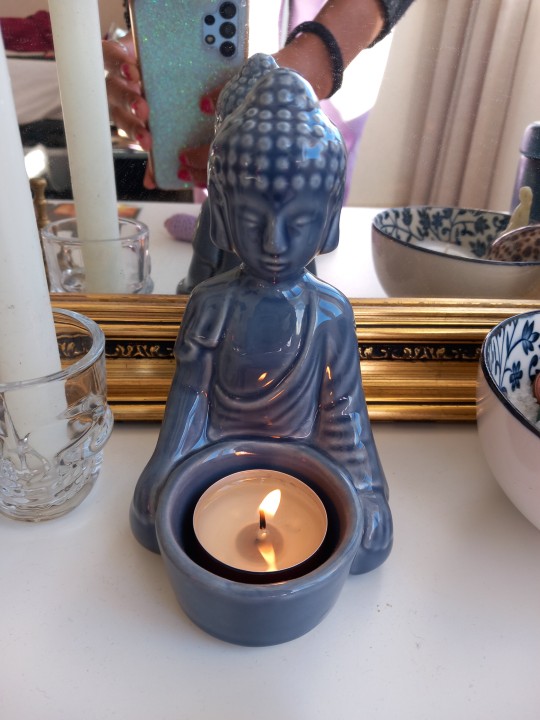
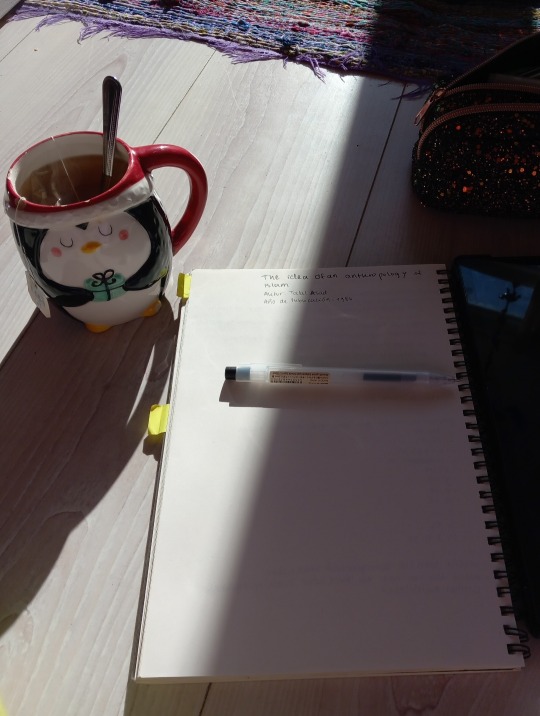

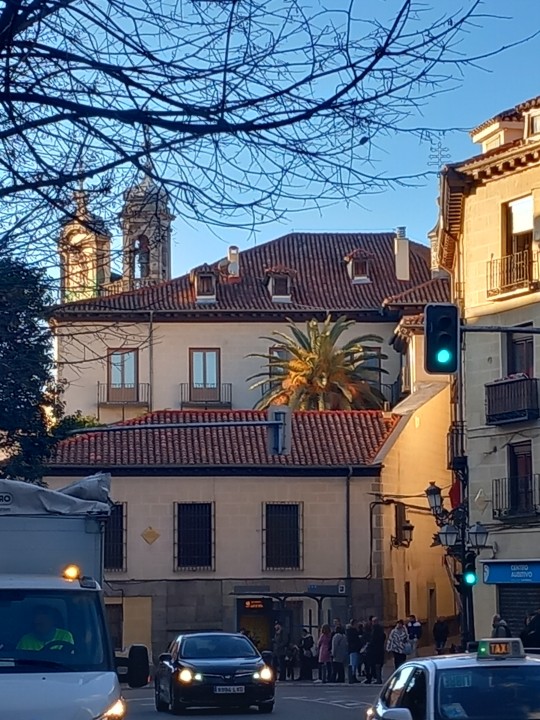

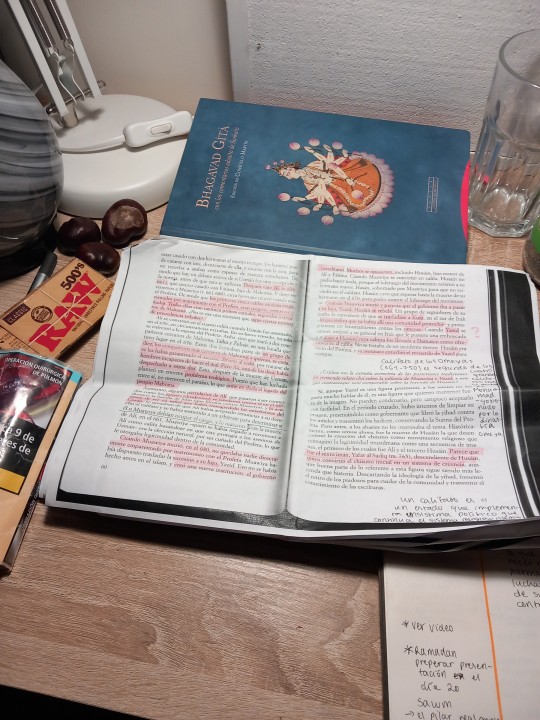
Sunday, 7th of January
I studied on the floor so that I would be able to sit in the sun.
Productivity:
Spent 3,5h studying for my Islam exam
Bought some groceries
Cleaned the bathroom
Read a few pages of the introduction to the Bhagavad-Gita
Tidied up my room
Selfcare:
Read tarot
Burned incense
Moved around some stuff on my altar
Journaled a bit
Prayed
Started listening to Enchantment: reawakening wonder in an exhausted world (audiobook)
Read the first part of The book of hours by Rainer Maria Rilke
Had coffee with a friend
#study blog#studyspo#100 days of productivity#study motivation#studyblr#studying#student#study aesthetic#witch blog#religious studies#altar#bookish#books and reading
25 notes
·
View notes
